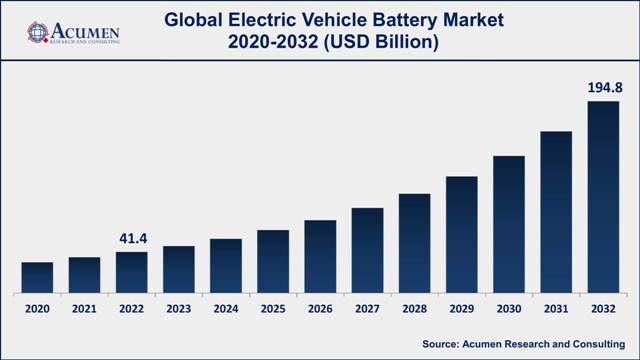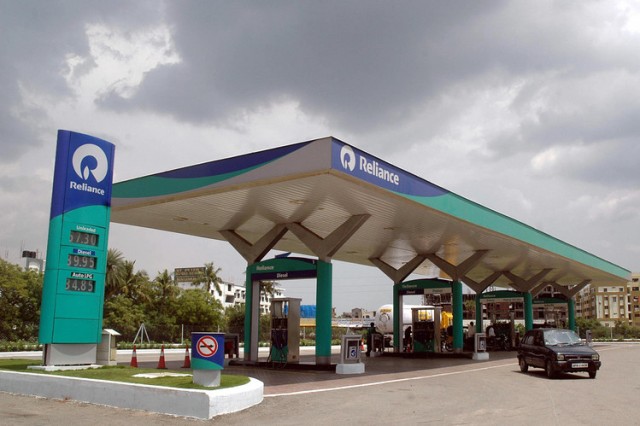In a strategic move towards promoting clean energy, Reliance Industries (RIL) unveiled its innovative swappable and multipurpose battery storage technology designed for electric vehicles (EVs) and home appliances. The demonstration took place at a renewable energy exhibition, showcasing RIL’s commitment to a greener future, Reuters news report said.
The global electric vehicle battery market size accounted for $41.4 billion in 2022 and is projected to achieve a market size of $194.8 billion by 2032 growing at a CAGR of 16.9 percent from 2023 to 2032.
The breakthrough technology involves removable and swappable batteries specifically designed for EVs, which can also serve as power sources for household appliances via an inverter. This innovative approach allows a single battery to power both mobility needs and household electronics.
 Company executives, speaking on condition of anonymity as they were not authorized to address the media, highlighted that the batteries could be easily swapped at Reliance’s designated battery swap stations or recharged using rooftop solar panels, which the company also plans to distribute.
Company executives, speaking on condition of anonymity as they were not authorized to address the media, highlighted that the batteries could be easily swapped at Reliance’s designated battery swap stations or recharged using rooftop solar panels, which the company also plans to distribute.
This initiative aligns with Reliance Industries’ ambitious $10 billion investment plan focused on green energy projects, aiming to reduce reliance on its traditional oil-to-chemical business and achieve net-zero carbon emissions by 2035.
The company’s strategic acquisitions in the battery sector, including UK-based Faradion and Lithium Werks, have fortified its battery technology portfolio. Displaying lithium iron phosphate (LFP) chemistry-based batteries at the exhibition, RIL also showcased plans for customizable batteries catering to both individual and business requirements, intelligent swap stations, and integrated charging networks.
Contrary to entering EV manufacturing, Reliance Industries aims to collaborate with existing EV manufacturers, as depicted in a presentation during the event.
Last year, Reliance secured an incentive to establish a 5 gigawatt hours (GWh) battery manufacturing facility, a significant milestone under India’s $2.4 billion initiative promoting local battery cell production. The facility, slated for completion by 2026, will focus on battery and containerized energy storage solutions.
India’s focus on clean auto technology is pivotal in addressing pollution in major cities and achieving broader climate goals. Presently, the adoption of electric vehicles in the country is hampered by high costs attributed to imported batteries and inadequate charging infrastructure, prompting an urgent need for innovative solutions like RIL’s swappable battery technology.

